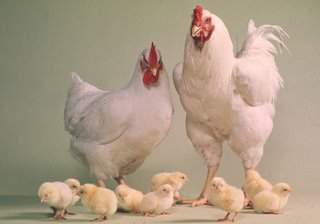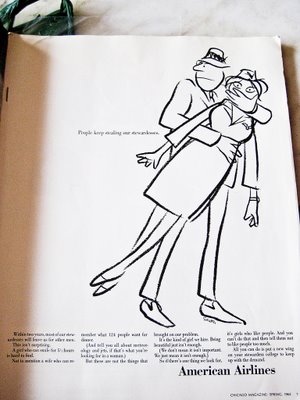I love this picture!*
It’s a wonderful illustration of the way in which we tend to project a gendered nuclear family model onto animals in ways that make that model seem more “natural” and “universal” than it is. (For the argument, try Donna Haraway’s Teddy Bear Patriarchy.)

Chickens, at least in captivity, do not live in lovely nuclear families like the nice chicken family above. They live in harems with just one rooster and lots of hens. Notice, too, how the hen is looking down (lovingly? maternally?) at her chicks, while the rooster is looking out into the distance (for danger? the protector?). Or maybe he’s checking out all those other “chicks” he gets with.** You know, a man has got to sow his seed. Oh wait, he’s not a man, he’s a CHICKEN!)
Even their bodies match our culturally and historically specific norms. Their height difference nicely matches the ideal in our society for male/female pairs (but not the reality, see here). To take the anthropomorphization further, you can almost see the hen’s fertile hips and the rooster’s strapping shoulders (am I going to far?).
* Unfortunately, I’ve had this picture for a long time and I’m afraid I don’t remember where it came from.
** Did you see that? I managed to get in the infantilization of adult women, um, hens, and the sexualization of young girls, um, chicks.





